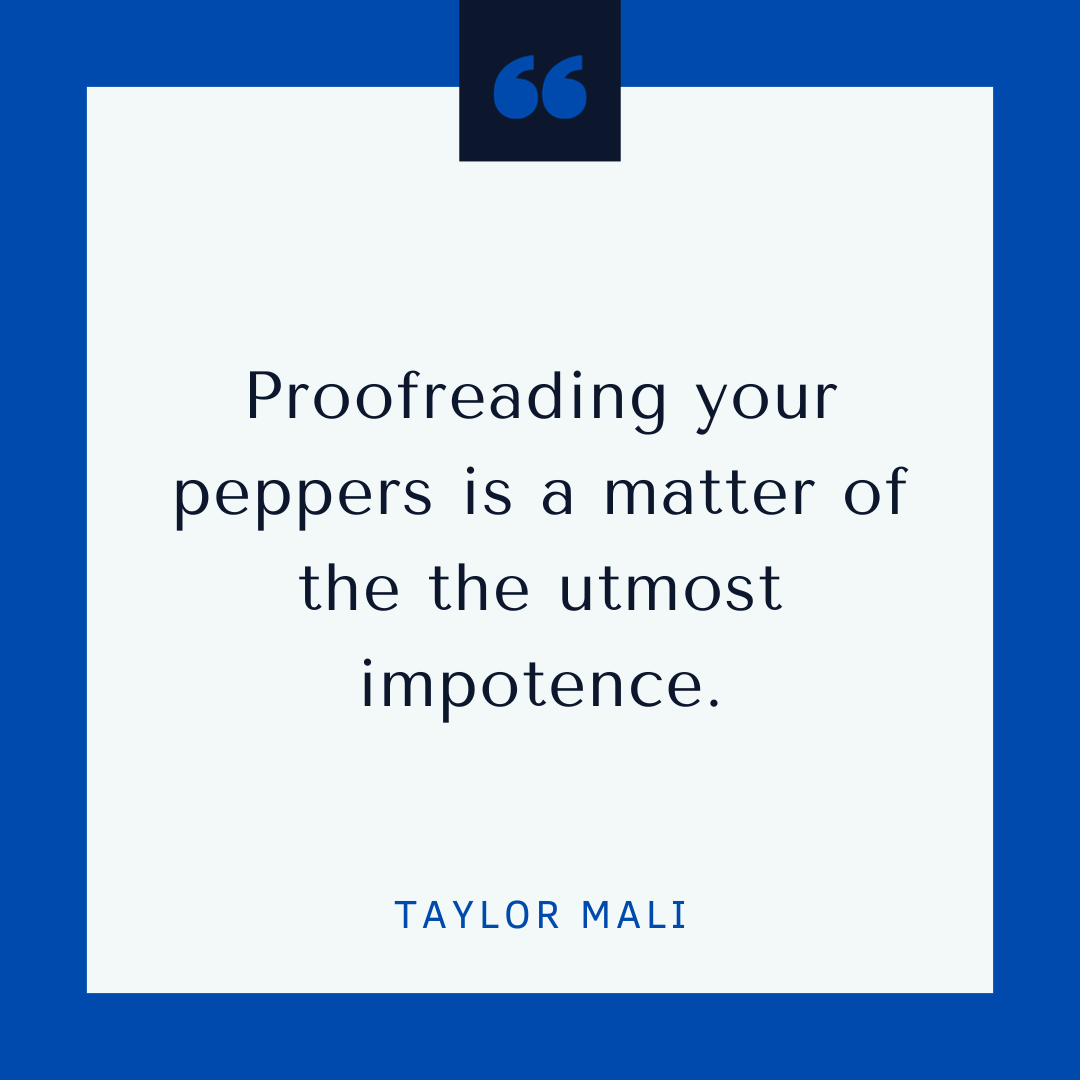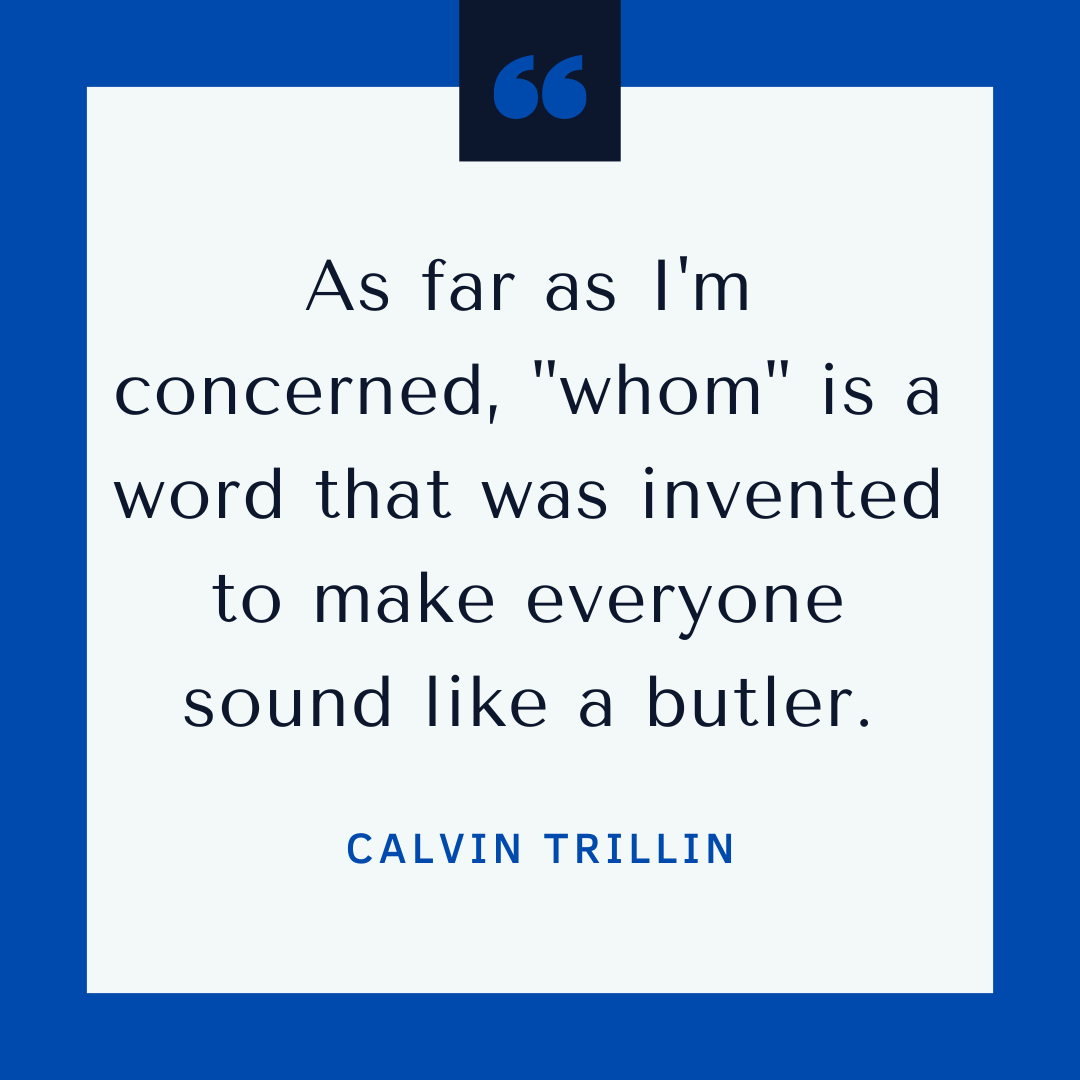Proofreading Doesn’t Fix All the Boo-Boos
If you hire a person to paint your kitchen cabinets, you wouldn’t expect them to renovate your entire kitchen for free. If you go to the dentist for a semiannual cleaning, you wouldn’t blame them for your cavities and expect them to drill them at no cost. If you take a driver’s ed course, you wouldn’t be ticked your instructor didn’t offer to become your complimentary chauffeur.
If we’re wrong, we suggest you read this or this instead.
In the same way, proofreading can do a lot to improve your writing, but some tasks are simply beyond its scope. This isn’t due to a lack of motivation—most proofreaders are overeager to provide great value and exceed your expectations. This limitation is simply a matter of definition—what proofreading is and what it isn’t.
What Proofreading Doesn’t Address
Formatting and Layout
Proofreaders work with the text, not the packaging—that’s a job better suited to a graphic designer. Your software or platform or final file type may have different formatting anyway. And trust us when we say you don’t want people with bubkes in graphic design experience fiddling with your darlings.
Web or Copy Design
We aren’t programmers or web designers, so we won’t make changes directly to your website. This is for your protection and sanity. In addition to being outside the scope of a proofreader’s duties, that sort of arrangement can create security concerns and bring ruin to your day. Your IT department will second that emotion (loudly and angrily).






